 July 2019 in “Technology audit and production reserves”
July 2019 in “Technology audit and production reserves” Researchers created probiotic shampoos with plant extracts that could be popular in Ukraine's natural cosmetics market.
April 2019 in “Journal of Drug Delivery and Therapeutics” Poly herbal shampoo powders are effective for hair care and meet modern needs.
 May 2017 in “Journal of The American Academy of Dermatology”
May 2017 in “Journal of The American Academy of Dermatology” The new baby shampoo and wash with stearic acid is safe and potentially effective for nourishing babies' skin.
 April 2017 in “Journal of Investigative Dermatology”
April 2017 in “Journal of Investigative Dermatology” Using a stimulating cream shampoo before applying Minoxidil increases its penetration into hair follicles and scalp.
 April 2016 in “Journal of Investigative Dermatology”
April 2016 in “Journal of Investigative Dermatology” Using a stimulating cream shampoo before applying Minoxidil helps it penetrate hair follicles better, enhancing its hair growth-promoting effect.
November 2010 in “Deleted Journal” The herbal shampoo with lavender oil was effective and well-liked by users.
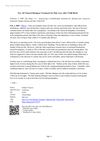
The new all-natural shampoo treatment can prevent hair loss and encourage hair regrowth in new mothers.
16 citations,
January 2000 in “Journal of dermatological treatment” Calcipotriol scalp solution works better than coal tar shampoo for treating scalp psoriasis and is safe for long-term use.
10 citations,
December 2020 in “Dermatitis” Ethnic hair products contain different allergens than nonethnic ones, with fragrance being the most common in ethnic products.
 January 2023 in “International Journal of Research Publication and Reviews”
January 2023 in “International Journal of Research Publication and Reviews” Some herbal ingredients like linalool and tea tree oil have anti-dandruff properties and are safe for use in shampoos.
 80 citations,
March 2008 in “Contact Dermatitis”
80 citations,
March 2008 in “Contact Dermatitis” Nearly half of the French individuals surveyed reported having a sensitive scalp, more common in women, often linked to hair loss and symptoms like itching, and triggered by factors including shampoos and pollution.
 44 citations,
January 2010 in “International journal of trichology”
44 citations,
January 2010 in “International journal of trichology” Choosing the right shampoo for your hair type is crucial.
 5 citations,
April 2023 in “BMC Microbiology”
5 citations,
April 2023 in “BMC Microbiology” Shampoo with heat-killed Lacticaseibacillus paracasei GMNL-653 improves scalp health and hair growth by changing scalp bacteria.
4 citations,
August 2007 in “PubMed” Polyquaternium-70 shampoo is best for reducing frizz.
 3 citations,
February 2023 in “ACS omega”
3 citations,
February 2023 in “ACS omega” Grape seed oil improved hair quality the most, followed by rosehip and safflower seed oils, and reduced damage from shampoo.
 3 citations,
November 2019 in “Cosmetics”
3 citations,
November 2019 in “Cosmetics” Shampoo with Inula Helenium and Caesalpinia Sappan Bark extracts promotes hair growth and prevents hair loss in androgenetic alopecia patients.
2 citations,
September 2011 in “Revista de Ciências Farmacêuticas Básica e Aplicada” The chili pepper shampoo was safe and well-liked by volunteers.
2 citations,
July 2023 in “Cosmetics” Surfactants in shampoos and conditioners remove some but not all lipids from hair, and more research is needed to understand their full impact.
2 citations,
March 2021 in “CRC Press eBooks” Shampoos clean and improve hair, boosting confidence and quality of life.
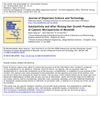 2 citations,
April 2008 in “Journal of Dispersion Science and Technology”
2 citations,
April 2008 in “Journal of Dispersion Science and Technology” Shampoos with more than 0.6% of cationic minoxidil particles can promote hair growth.
 1 citations,
February 2022
1 citations,
February 2022 Lavender scent in shampoo can relax and help with memory, while geranium scent can make you more alert and improve memory.

A 15% clove leaf extract shampoo promotes hair growth but is less effective than minoxidil.
 February 2024 in “Jurnal Tata Rias”
February 2024 in “Jurnal Tata Rias” Aloe vera and lime shampoo effectively reduces hair loss and improves scalp cleanliness.
 February 2024 in “Jurnal Kesehatan Yamasi Makassar”
February 2024 in “Jurnal Kesehatan Yamasi Makassar” Pondoh salak fruit peel extract is effective in shampoo and has strong antimicrobial properties.
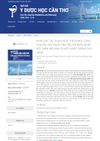 May 2023 in “Tạp chí Y Dược học Cần Thơ”
May 2023 in “Tạp chí Y Dược học Cần Thơ” The shampoo with grapefruit peel and Gleditsia sinensis helps mice grow hair faster, more, and longer.
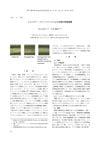 November 2017 in “Koubunshi rombunshuu/Kōbunshi ronbunshū”
November 2017 in “Koubunshi rombunshuu/Kōbunshi ronbunshū” Hematin in shampoo helps repair and straighten damaged hair.
 January 1997 in “Elsevier eBooks”
January 1997 in “Elsevier eBooks” The document explains how shampoos clean, rinses condition, one-step shampoos offer convenience, and hair growth promoters aim to prevent hair loss, emphasizing the importance of scientific evidence for their effectiveness.
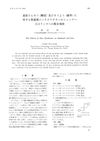 January 1978 in “Yukagaku”
January 1978 in “Yukagaku” Zinc pyrithione in shampoo or rinse reduces dandruff and itching.
 July 2004 in “Clinics in Dermatology”
July 2004 in “Clinics in Dermatology” The Third World Congress of the International Academy of Cosmetic Dermatology discussed various topics like hair disorders, skin conditions, wound healing, shampoo technology, acne treatment, and the use of lasers in dermatology.





















